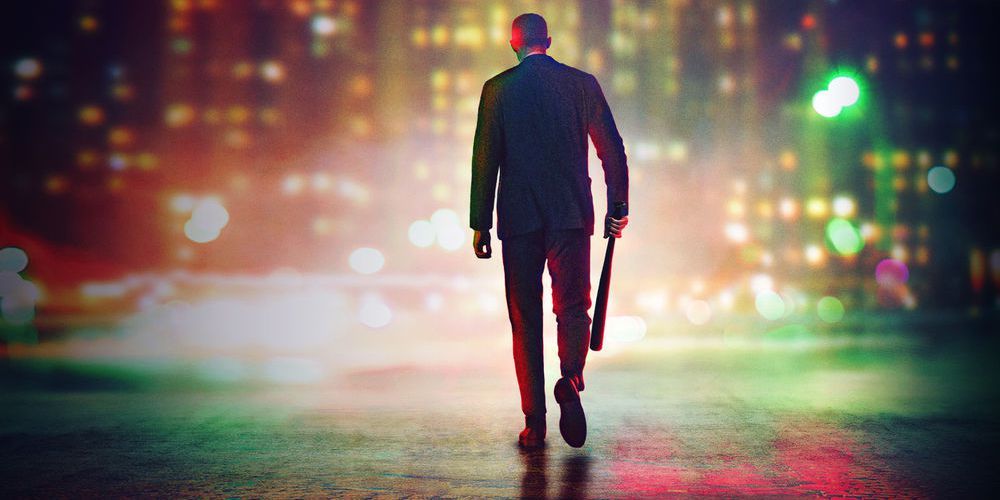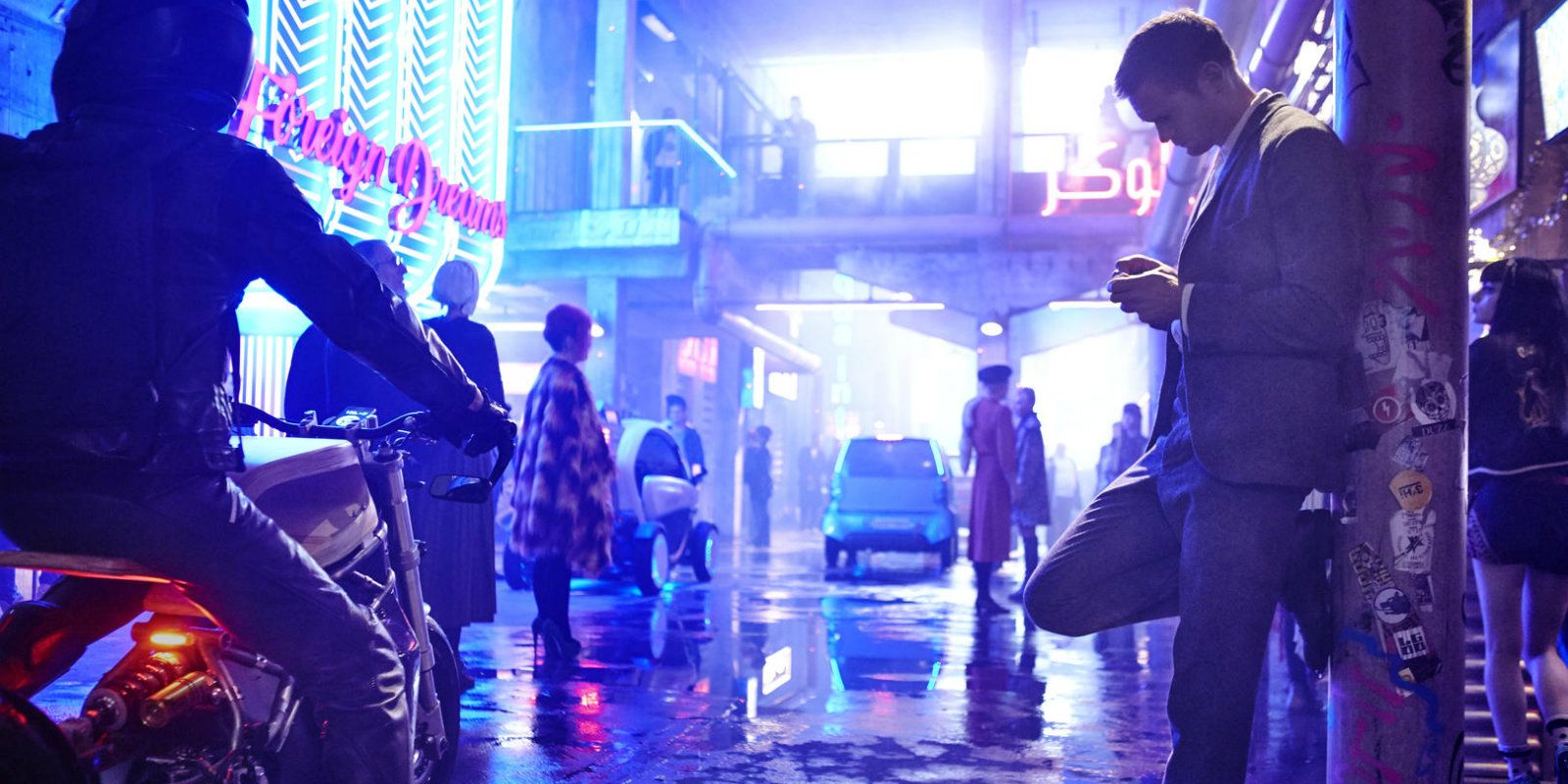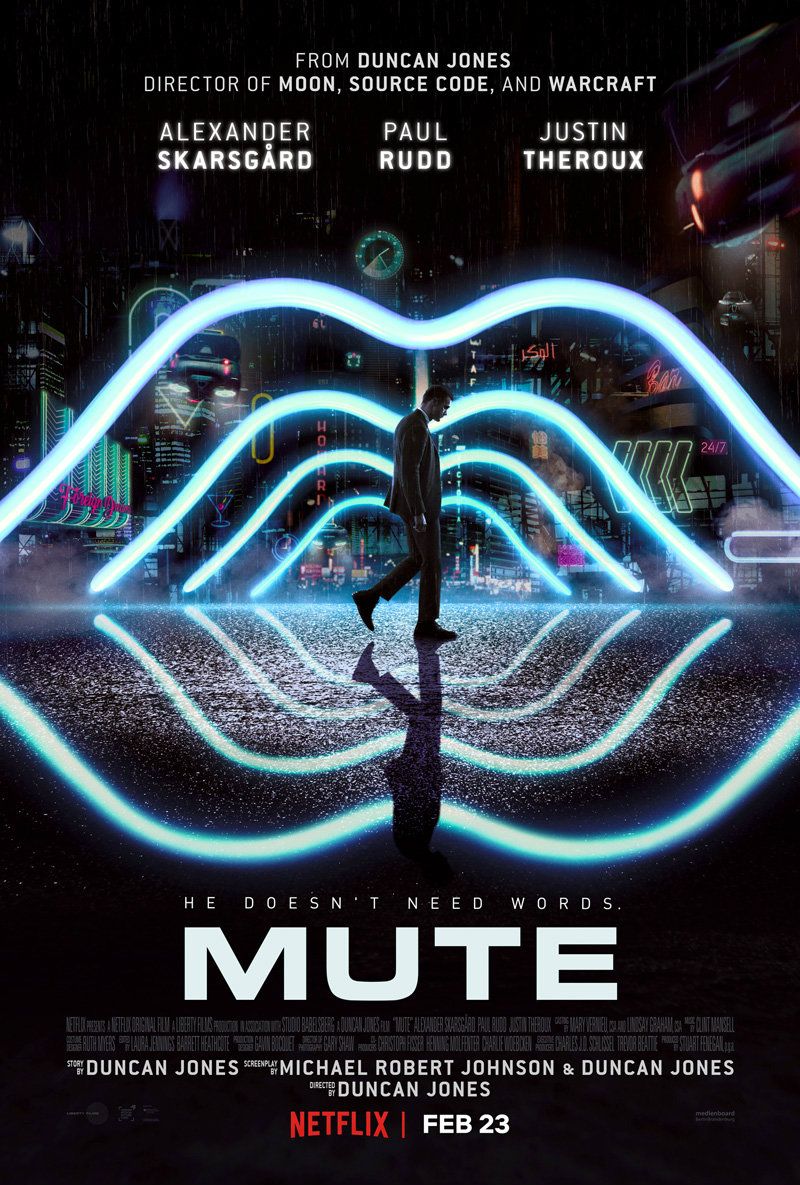Duncan Jones' Mute has finally arrived on Netflix, but should you wait that little longer for an end-credits scene? The Moon director has been trying to get his spiritual follow-up off the ground for well over a decade, and after it first existing as a comic, it's finally come to the screen thanks to Netflix, with Alexander Skarsgård and Paul Rudd in the lead roles.
Mute follows Skarsgård as the titular voiceless bartender who searches a neon-future Berlin heavily inspired by Blade Runner to find his missing girlfriend, while Rudd goes on his own adventures with his fetching mustache. The film has received a mixed response from critics, but its release on Netflix is sure to lead to it getting a sizeable audience, as happened to similarly divisive streaming release Bright.
Related: Mute Review: Duncan Jones’ Berlin Runner 2049
Regardless of what you think of the movie, if you're tempted to sit (or fast-forward) through to the end of the credits, you're not going to find anything: there is no post-credits scene for Mute. Of course, it's still worth sticking around as always for the score and to see all the people who worked on the film. The real joy, though, comes at the start of the credits, where Jones puts a touching tribute to his father David Jones (better known as David Bowie) and nanny Marion Skene, who died in 2016 and 2017 respectively.
Netflix's Post-Credits Scene Problem
While Netflix is taking on the cinemas with the blockbusting release of Bright and all-around cultural event The Cloverfield Paradox, post-credits scenes are one aspect of modern movie viewing they're yet to be able to fully capitalize on. Part of it purely technical. At the end of every show and movie on Netflix, the immediate move from the service is to start a count down to something new - the next episode or a trailer for some related (usually original) content. The credits themselves are pushed to the top-left corner and viewers have to actively select the scrolling names before the next thing plays. Regardless of your thoughts on the practice, this means far fewer people are watching credits than in a movie theater, and so anything snuck in at the end is seen by a fraction of the audience. That can be a neat Easter egg but is hardly a focus point.
The other barrier to end credits stingers on the service is the ease at which people can skip ahead. The wait for a is a big part of the anticipation (to the point that Marvel joked about it with Spider-Man: Homecoming's post-credits scene), something that can be simply fast-forwarded through for Netflix.
Not everyone will complain about this. The likes of James Mangold have spoken out against the practice, although that does treat something intended to be a little fun far too seriously.
Indeed, it's especially a shame for a movie like Mute that could have benefitted from a little tease: a bit more of the Sam Bell clones from Moon would have been the perfect coda.
Next: Where Do You Recognize The Cast of Mute From?



